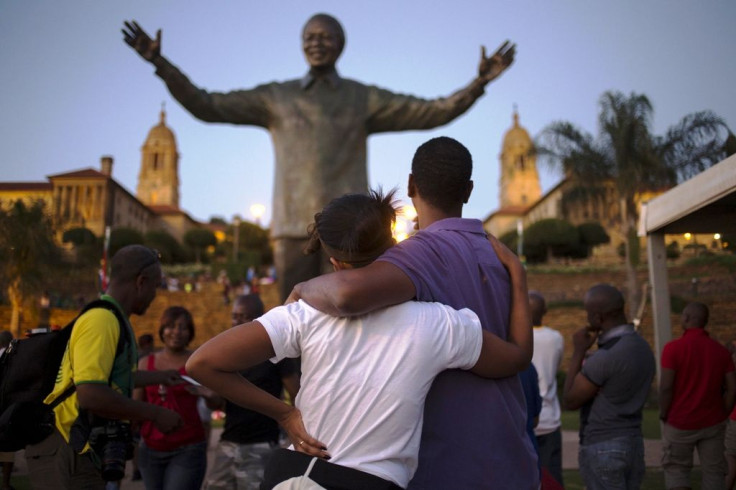Day Of Reconciliation 2016: Facts About South African Holiday Celebrating National Unity

The Day of Reconciliation is considered one of the most important holidays in South Africa. It falls on Dec. 16 every year and celebrates national unity and reconciliation after decades of racism in the country, where apartheid ended in 1994.
The Day of Reconciliation was celebrated as a public holiday for the first time on Dec. 16, 1995, after South Africa’s first non-racial and democratic government post-apartheid was established, making Nelson Mandela the country’s first president. Two historical events took place on Dec. 16 — Battle of Blood River in 1938 and formation of the African National Congress’ military wing know as “uMkhonto we Sizwe” (Zulu for “Spear of the Nation”). Both the events are significant for Afrikaners (ethnic groups descended from predominantly Dutch settlers) and those opposing the apartheid policy.
Here's what you need to know about how the Day of Reconciliation came to be.
- In mid-1930s, the Voortrekkers (southern Africans of Dutch, German, or Huguenot descent who made the Great Trek) were looking for land to settle after moving into the interior of South Africa. The land they were planning to settle on was already inhabited by the Zulu people. Following this, the Voortrekker leader Piet Retief was willing to negotiate with the Zulu chief Dingane, who misunderstood Retief’s intentions and planned an ambush and killed him along with 100 Voortrekkers.
- The incident triggered Battle of Blood River near Ncome River in KwaZulu-Natal province on Dec. 16, 1838. The Voortrekkers, led by Andries Pretorius, vowed to build a church on the land in return for god’s help.
- About 470 Voortrekkers, who had the advantage of gunpowder, defeated the Zulu army of 10,000 people. Blood of the casualties flowed into Ncome River turning its water red giving it the name “Blood River.” Since then, this victory was commemorated as the Day of the Vow.
- Over the years, Dec. 16 became a date for several protests by Africans challenging racial discrimination.
- On Dec. 16, 1961, the African National Congress’ military wing “uMkhonto we Sizwe” was formed. The group launched an armed struggle against the apartheid government. The first acts of violent resistance against the apartheid leaders also took place on that day.
South Africa’s first non-racial and democratic government of African National Congress chose the day as public holiday because of its significance to both Afrikaners and Africans.
© Copyright IBTimes 2024. All rights reserved.






















